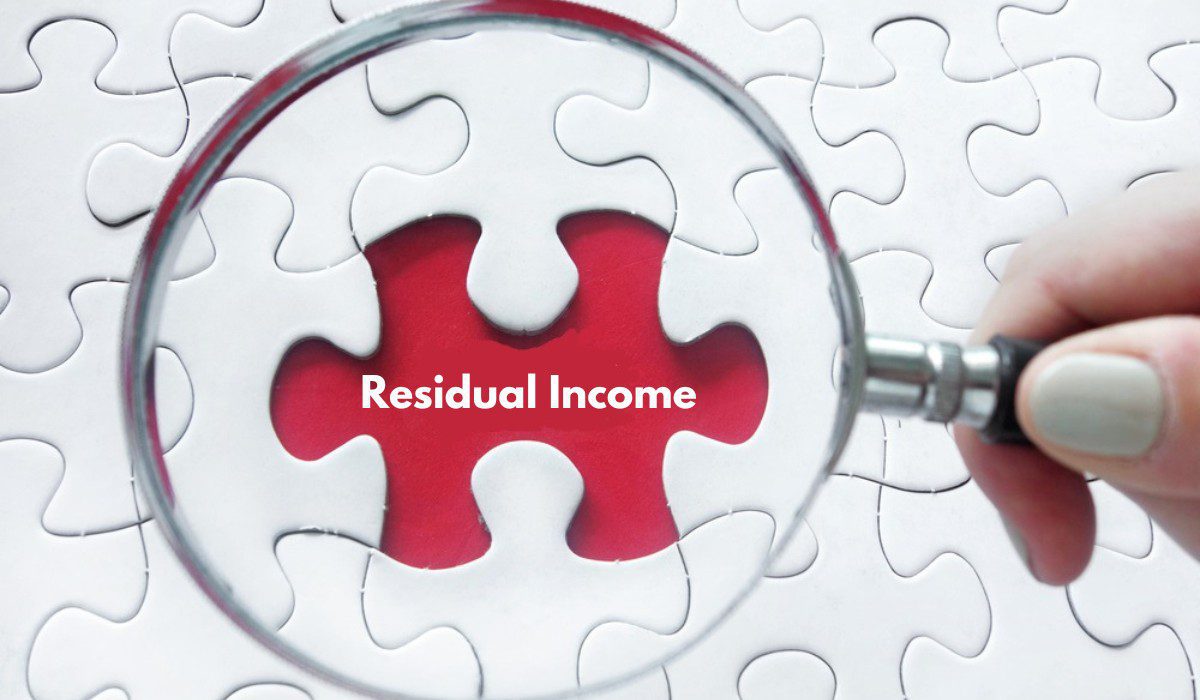The money you have left over after paying your mortgage, credit card bills, utility bills, food, and other recurring costs is referred to as residual income. This extra cash can be used for savings, investments, debt repayment, debt consolidation, or even a vacation fund.
It’s possible that you’ve heard “passive income” and “residual income” used interchangeably. Earning money with little to no effort is known as passive income. And it may come from sources such as dividend stocks, rental property earnings, or other sources.
To raise your monthly residual income, you could leverage passive income streams. The sources of residual income, however, might not necessarily be passive.
In essence, residual income tax is the amount of tax due after deducting any tax credits and refunds you may be entitled to (excluding provisional tax). Your tax return’s tax calculation identifies residual income tax.
See also: Income tax on interest on fixed deposits
Residual income tax: Is residual income taxable?
The majority of residual income is taxable indeed. Perhaps there are some tax-exempt municipal bonds whose income is not taxed. If not, it is taxable income regardless of how you received it—from stock dividends or by renting out a spare bedroom.
Residual income tax: How to generate residual income?
The majority of sources of residual income demand an upfront input of capital, equity or both. Some examples are:
Purchase bonds: As soon as the bonds are bought, the owner has access to a stream of cash until the bonds mature.
Purchase a rental property: After making the first investment, renting out a second home or investment property is a sensible method to increase your income with little more work. If you do not have the startup capital, think about renting out an extra bedroom.
Invest in index funds: Even if you do not actively manage your investment, your returns can increase over time.
Peer-to-peer lending: This is one of the many forms of residual income that the internet has made possible. Several services enable private, unsecured loans between individuals at low-interest rates.
Selling goods: Any side employment that increases your income outside of your primary work qualifies as residual income in the broadest sense. eBay is a great way to make money while decluttering your closet. For creative types looking to make money from a pastime, Etsy is fantastic.
Residual income tax: Why is residual income important?
Residual income is often passive income. By definition, passive income is rather simple and easy to obtain. Examples include bond premiums and stock dividends.
Your residual income is the sum of money you have left over after all of your monthly bills have been paid. It is also known as discretionary income.
Residual income has a distinct significance when you are making long-term plans. It is the amount of money you currently earn (or anticipate earning in the future) from passive sources like interest and dividends.
FAQs
What are the limitations of residual income?
The residual income strategy is challenging to comprehend and use. This approach is difficult to use and calls for extensive accounting and financial management understanding.
What factors impact residual income?
The net income made above the minimum rate of return is known as residual income. The cost of running assets, the minimum required return, and net operating income are the three inputs needed for this calculation. Most frequently, the residual income is represented by a monetary sum.
Housing News Desk is the news desk of leading online real estate portal, Housing.com. Housing News Desk focuses on a variety of topics such as real estate laws, taxes, current news, property trends, home loans, rentals, décor, green homes, home improvement, etc. The main objective of the news desk, is to cover the real estate sector from the perspective of providing information that is useful to the end-user.
Facebook: https://www.facebook.com/housing.com/
Twitter: https://twitter.com/Housing
Email: [email protected]











